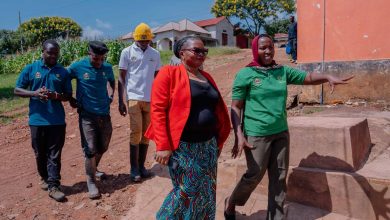Demographic dividend boost capital market

WHAT’S the best age to start investing in the capital market, especially in stocks and bonds? It’s a common question and the answer is refreshingly simple, anytime, but the earlier, the better. Like fine wine, investments, especially in stocks, when carefully selected with technical support from verified and registered stockbrokers, mature and become more rewarding over time.
The longer you stay invested, the sweeter the returns. Take this example: 16 years ago, CRDB Bank launched its Initial Public Offer (IPO), offering shares at 150/- each. By July 2025, those shares have traded at up to 1,000/- a 660 per cent increase, excluding annual dividends earned along the way.
But this impressive return didn’t happen overnight, it took time, patience and consistency.
The lesson here is powerful: Young people have the greatest potential to benefit from long-term investing.
A 24-year-old who invested during the CRDB IPO is now in their 40s and already enjoying substantial gains. If they hold their shares until retirement, they could multiply their initial investment many times over.
This example shows that nations like Tanzania with a large, youthful working-age population, can prosper in the capital market if the youth are equipped early with investment knowledge. Not only does this empower individuals financially, but it also strengthens the business environment by channeling more capital into productive, job-creating enterprises.
What is the demographic dividend?
The demographic dividend refers to the economic growth potential that arises from changes in a country’s population structure specifically when the working-age population, typically ages 15–64, becomes larger than the dependent population— children and the elderly.
ALSO READ: Afriprise Investment proposes 40pc dividend increase
According to the 2022 Population and Housing Census (PHC), Tanzania has a population of 61.7 million, with the workingage population making up 53.4 per cent. With such a youthful population, the country is well-positioned to benefit from this demographic shift particularly through sectors like capital markets, education, technology and health.
How can the capital market leverage the demographic dividend?
Policy reforms to encourage early participation. Tanzania’s young population provides a unique opportunity to build a strong base of local investors. However, current policies don’t go far enough.
The government should integrate capital market promotion into youth development and economic policy frameworks. Incentives like tax breaks for first-time investors under 35 and digital platforms for trading and investment, can significantly improve access especially for youth in underserved or rural areas.
Embedding investment literacy in education
To fully harness the dividend, investment education must be embedded into all levels of the education system. Many young Tanzanians finish school without any financial literacy.
Updating school curricula to include concepts such as saving, stocks and bonds is essential. Higher learning institutions should partner with the Dar es Salaam Stock Exchange (DSE) and Capital Markets and Securities Authority (CMSA) to offer guest lectures, simulations and student investment clubs.
Vocational training centres and adult education programs should also introduce informal modules to engage out-of-school youth and working adults.
Creating a cultural shift toward saving and investing
In many Tanzanian communities, especially among youth, spending is seen as a status symbol, while saving and investing are misunderstood or even discouraged.
To unlock long-term gains, a national cultural shift is needed. Awareness campaigns featuring local success stories can help debunk the myth that investing is only for the wealthy.
Partnering with religious leaders, traditional authorities and social media influencers can help normalise investing.
Institutionalising events like Capital Market Awareness Week can reinforce positive investment behaviour nationwide. Promoting inclusion of women and rural youth Although the potential is vast, women and rural youth often face systemic and cultural barriers to participating in capital markets.
Investment products must be more accessible, with lower entry thresholds and flexible contribution plans tailored to informal and variable incomes. SACCOs, women’s groups and youth cooperatives can serve as key channels for spreading awareness and facilitating participation.
Data-driven policy interventions
The 2022 Census provides a wealth of demographic data that can be used to tailor capital market outreach. By segmenting the population by region, age and education level, policymakers and stakeholders can identify underserved areas and design targeted awareness and training initiatives.
For example, regions with a high density of youth but low participation in investment activities should be prioritised.
Take away
The country is at a strategic point in its development journey. The demographic dividend offers a time-bound opportunity to transform the economy if the right steps are taken.
By promoting early and inclusive participation in capital markets, embedding investment education across institutions, shifting cultural norms and using datadriven strategies, Tanzania can turn its youthful population into a powerful force for national prosperity.





